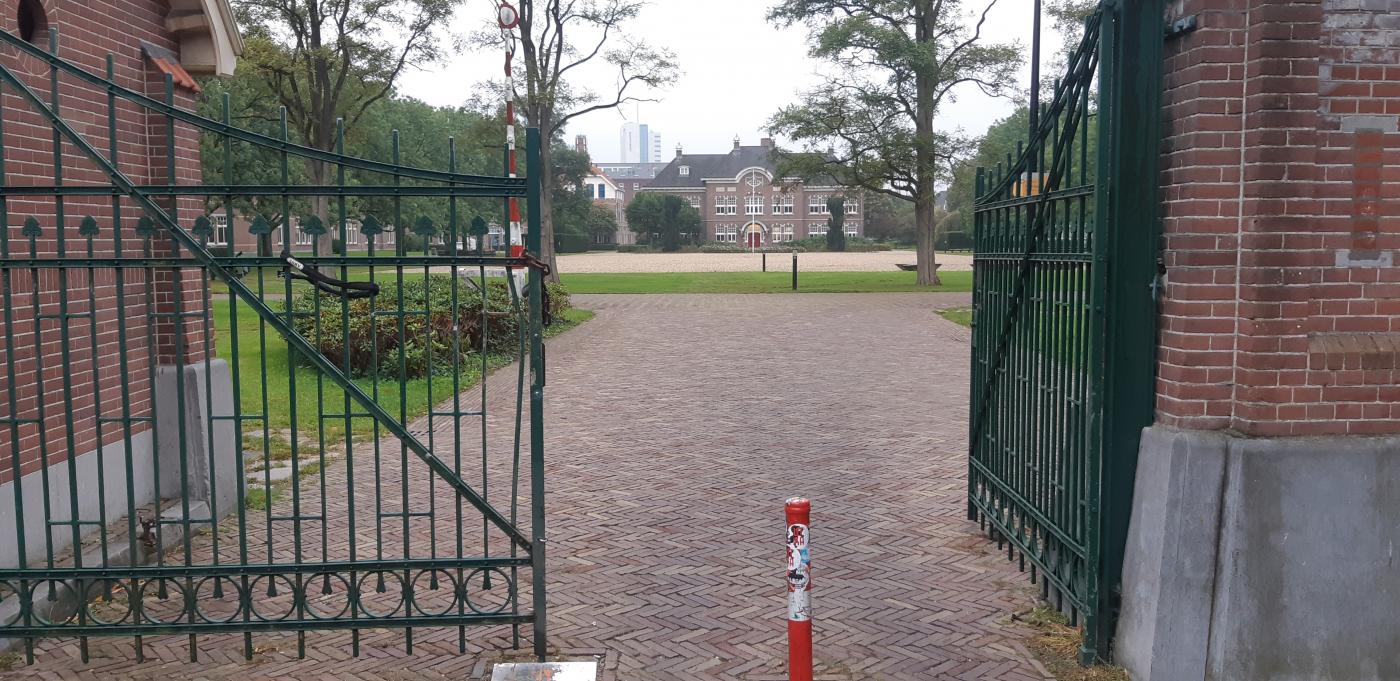Reorganisation UCU to strengthen bond with university

After the university board’s decision to sell the University College Utrecht (UCU) campus at the Prins Hendriklaan was announced, people immediately started speculating about a possible new campus for the English-language Liberal Arts programme in De Uithof. But there are more ways in which UCU should engage more with the other departments at the university, according to a reorganisation plan presented on Monday by Dean James Kennedy.
UCU’s pioneering position has been under pressure for some time now, Kennedy states. The competition of other broad, English-language programmes and other university colleges is becoming more and more urgent. It’s only when UCU builds a stronger synergy with the UU faculties that University College will be able to keep its status as innovative educational testing ground.
The proposed new organisational structure should assist with reaching that goal. The plan includes establishing an advisory board, with several (former) faculty vice-deans as members. They will be there to indicate which collaborations within and outside of the university are necessary and possible.
Next to this, people in important positions within the organisation will, in the future, be expected to be involved in the university’s research themes, and to be able to use that experience to create innovative education at UCU. These can be both teachers from UCU’s own staff as well as teachers from the seven UU faculties who will then be given a part-time position at UCU. UCU works with its own staff of teachers and with teachers from the faculties.
Because in the future, these pivotal roles may be temporary only, more career opportunities will be introduced. This should make (part-time) working for UCU for a longer period more attractive for faculty teachers; this is currently often an issue. At the moment, for instance, UCU sees around forty UU teachers come and go each year. This is optimal for neither UCU nor the faculties, says the Dean.
Criticial report
The decision to reorganise was announced last autumn after a remarkably critical report from a committee led by former director of the university’s Corporate Office, Joop Kessels. Kessels says that the small organisation is too inward-looking, with a visible dichotomy between the UCU staff and the contracted UU teachers. Furthermore, there’s an unclear organisational structure, with too wide a gap between management and teaching and supporting staff. All these things hinder effective decision-making and a vital look outside.
Talking to DUB in June, Dean James Kennedy already stated his wish to follow up on most of the Kessels committee’s recommendations. An important change, for instance, is abolishing the departmental structure. At the moment, three departmental heads lead the employees in a collection of educational tracks. The Kessels committee stated that the departments were too large, and that it was next to impossible to create substantive exchanges - both between tracks at UCU, and between UCU tracks and UU programmes. Following the recommendation of the committee, the UCU board decided to replace the departments with six clusters of tracks, with six cluster heads.
One hot-button issue, however, was the position of so-called fellows, who are responsible for the content of the tracks. Originally, the cluster heads were meant to replace both the current department heads and the current fellows. During UCU meetings about the desired new organisational structure, many resisted the future loss of the fellows. The board decided to retain the fellows in the new organisational structure, although it will implement specific criteria. In the future, fellows have to have concrete connections to UU research, and will be given explicit instructions to strengthen the collaboration with the university.
The reorganisation will mainly affect the academic staff. For the overwhelming majority of employees, however, only their position within the organisation will change. Hiring six cluster heads at 0.3 fte each will mean that UCU’s staff expenses increase by around 40.000 euros a year.
No consequences for students
In Dean Kennedy’s opinion, students will not notice the changes. They will mainly be able to benefit from the more flexible cluster organisation which will make it easier to combine tracks. During Monday’s meeting, some employees did have some questions – about the future description of the majors students choose, among other things. The majors are currently linked to the departments of Science, Humanities, and Social Sciences. Kennedy says they still need to look into that, but he’s not expecting any major issues.
The plan will be discussed with the College Council next month. The intention is to start the new organisational structure in August of this year.